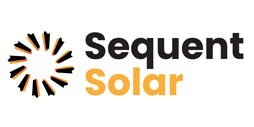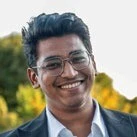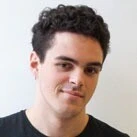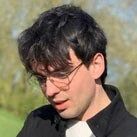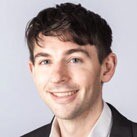We’re Sequent Solar, and we’re changing solar electricity generation.
As the world accelerates towards a greener future, we’re going to become increasingly reliant on sources of renewable energy. And it makes sense to harness as much of this as possible. With current consumer solar panels achieving less than half the efficiency of those in research labs, we think there’s plenty of room to improve.
We’ve developed a novel restructuring of the surface of a solar panel, trapping more of the sun’s rays and producing more energy. Not wanting to waste the good work done on existing panels, we’ve made sure they can also take advantage through retrofitting.
Our team of four engineers met whilst studying at the University of Cambridge and University College London. It quickly became clear that we were united through a shared passion for sustainability. We’ve taken our experience in aerospace engineering and manufacturing, including previous work with Boeing, and used it to create company that prioritises quality and innovation to make a real difference.
We’re going to apply our technology on new and existing solar panels across the world, push solar power generation forward and reducing our dependence on fossil fuel-based energy generation.
Let’s push the world forward to a brighter, greener future.
Get in touch
Founding team
Ashwin Iyer
Ashwin is a mechanical engineer currently pursuing an MPhil in Industrial systems, manufacturing and management at the University of Cambridge.
Ashwin is currently focusing on how AI can be implemented in helping companies in the manufacturing sector. He completed his undergraduate studies in mechanical engineering at Queen Mary University of London, where he met Alex. In his penultimate year of study he led the finance team at Queen Mary Formula Student to winning the “Cost and manufacturing excellence” award at Formula Student UK, securing first place among 30+ other international universities. In his final year, he and Alex founded their university’s first rocketry society, raised over 10,000 pounds of funding for it and built a committed team of 100+ students. They subsequently led the team to winning the “Most original design” award at the Mach23 competition in Scotland. They then successfully handed over the team to the next generation who guide it today.
During Ashwin’s time at Queen Mary he also undertook a summer internship programme at Imperial College London where he worked on new safety testing methodologies for Rolls Royce jet engines under Dr David Nowell. The outcomes of this project are still in use today at the vibrations lab at the university. He also undertook a winter internship at a new real estate development firm, ACUBE developers, in Dubai. He helped the company co-ordinate with architectural consultants, finalised designs for construction and helped secure the necessary approvals for the relevant regulatory bodies.
Manthos Kotsiopolos
Manthos is a Metallurgical Engineer (MSc. with honours from the NTUA) with experience in startups, having co-founded Twiddle Inc, a music design AI startup, and running operations for 4 years whilst managing a successful product launch and pre-seed funding.
Manthos is now studying Industrial Systems, Manufacture, and Management at the Institute for Manufacturing at the University of Cambridge, focusing on engineering and business evaluation of novel hydrogen production technologies.
Manthos has knowledge in product development and marketing and was part of the winning team of the MIT Enterprise Forum Greece 2019 whilst also working with investors. During this time he gained real-world problem-solving skills, enhanced my ability in experiential learning and developed my abilities to efficiently collaborate and manage projects.
Manthos has also worked in the past as a simulation engineer in prediction of mechanical properties of aluminium alloys based on their observed microstructure, and has also worked on crash test simulations for the NTUA F1 team and RadiNOx team of the CANSAT European Space Agency competition.
Alex Pinel-Neparidze
Alex is an aerospace engineer currently pursuing an MSc in Space Science and Engineering at UCL. His research focuses on the application of machine learning in solar physics.
Alex completed his undergraduate studies at Queen Mary University of London, graduating with first-class honours. During this time, he led a team of 5 engineering students in developing the chassis for the first hyperloop pod in London as part of the Hyperlink project. In his third year, he co-founded the Aurora QM Initiative with Ashwin Iyer. Their organisation aimed to design and assemble high-power rockets for international competitions. During their tenure, they recruited over 100 members, secured £10,000 in funding, won the Best Design award at the Mach23 competition in Scotland, and had plenty of fun.
As a project management intern at Open Cosmos, a satellite manufacturing company, Alex gained firsthand experience in overcoming the challenges of advancing a project, from securing the initial contract to the literal launch of the final product. During his time there, Alex worked alongside skilled managers who not only taught him effective project management but also entrusted him with the management of various space projects. Notably, he contributed to implementing AI systems into the upcoming Phisat-2 satellite, a collaborative project with the European Space Agency (ESA).
Tyler Holderness
Tyler is a highly motivated individual with a strong analytical mind and a proven track record of success in diverse environments. His experience spans across aerospace, defence, manufacturing and IT, allowing him to bring a unique perspective and skillset to any challenge.
Originally from South Africa, Tyler pursued a Bachelor of Engineering (First Class Honours) while working full-time. This experience instilled a strong work ethic and the ability to thrive in demanding situations. During his studies, he honed his skills in modelling, data analysis and project management.
Currently, Tyler is pursuing a Master of Philosophy in Industrial Systems, Manufacture, and Management at the University of Cambridge.
Previously, at Boeing, he held positions in both Operations Analysis and Reliability-centred Maintenance. He leveraged his analytical skills to conduct feasibility studies, optimise maintenance schedules and improve efficiency for various aerospace and defence projects. Additionally, he has experience in CNC programming and project administration acquired at A+ Aluminium, where he gained valuable insights into manufacturing processes and project management.
Furthermore, Tyler possesses a strong foundation in IT from his time as a desktop support engineer at Rubicon Communication Solutions. His commitment to continuous learning is evident through his Lean Level 1a certification and being awarded the prestigious Cambridge Masters & Trinity Hall Studentship.
Tyler is passionate about applying his technical expertise and problem-solving skills to solve complex challenges and contribute to innovation across diverse industries.


